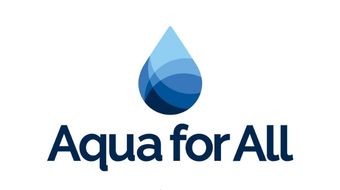Who could have imagined how the simple words “safely managed” would make such a difference? If there is one conversation which SDG 6.2 has prompted, it has been the conversation around fecal sludge management (FSM). “Safely managed” has opened the door to these discussions in many places, and it is now common to have a conversation about FSM even in remote rural towns across the world.
Why is FSM so important? Even in some countries where there are sewered systems and treatment plants, the inefficiency of those treatment plants can mean that a majority of sewage remains untreated, running straight into water courses and open water bodies. In most African district centres and small towns there are no sewers and no treatment services, but there is still plenty of sludge. This is the starting point for a circular economy solution or perhaps even a revolution.
Looking beyond the current take-make-dispose extractive industrial model, a circular economy aims to redefine growth, focusing on positive society-wide benefits. The FSM cycle encompasses the four stages of capture and storage, empty and transport, treatment, and re-use. The conundrum is that until you have a safe place to dump sludge, you cannot really start thinking about safe ways of emptying pits and septic tanks. Without a safe place to dump, you cannot start regulating for people to empty and safely dispose of materials in their pits and septic tanks. So, the starting point is the dumping site, and this is the first step of the revolution. There are technological solutions, including Decentralized Faecal Sludge Treatment (DEFAST) technology, which can now be built to cater to a small town, at a cost of between $1-2 per person. Pit-emptying technologies, such as gulpers and mobile transfer tanks, are now available to reach densely populated areas and can remove relatively small amounts of material. Vacuum trucks are not the only solution but certainly part of the solution. Technologies allow for multiple re-use options for treated sludge, such as compost and briquettes for cooking.
These are real starter solutions, which open the door to building a FSM market. Using a variety of technologies allows services tailored to specific needs and price points to reach all segments of the FSM market. The key to success in building these FSM markets is the value that can be generated at each step and finding a way to extract value from emptying services, dumping services, AND from re-use. Everyone from pit emptiers to government regulators needs to understand how this value can drive the market and create an effective system for service delivery and re-use while also creating profitable businesses. This will open up the real possibilities of public-private partnerships.
Water For People is demonstrating these approaches in two towns in northern Uganda. These districts have developed their plans for FSM and are providing strong support to regulating services. Decentralized treatment plants have been constructed and are leased (by the district) to private operators for their management. Pit-emptying services are running. Briquettes and compost are being produced and sold in markets. There is profit to be made along each step of the chain, and specifically in pit-emptying and re-use. The re-use business is also helping incentivize the effective management of the treatment plant.
The approach to building all aspects of this market based system, with “safely managed” services available to all, offers a pragmatic set of solutions to pressing problems. The next step is to move from 2 to 20 to 200 sites.
Contact:
Nick Burn, Chief Officer of Strategy and Scale
Water For People
100 E. Tennessee Ave.
Denver, CO 80209
www.waterforpeople.org
720.488.4590






